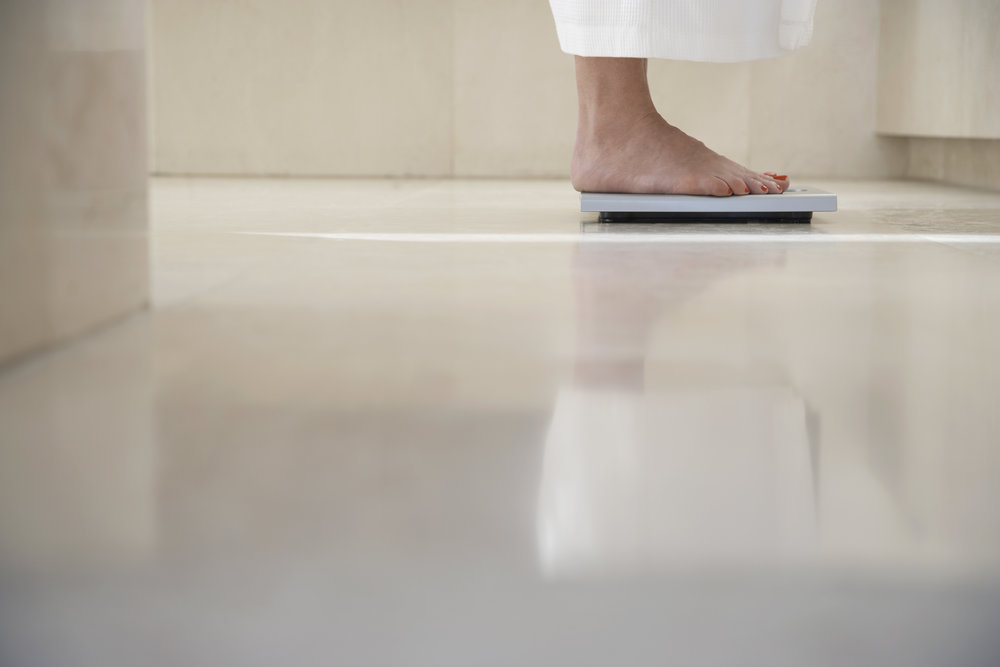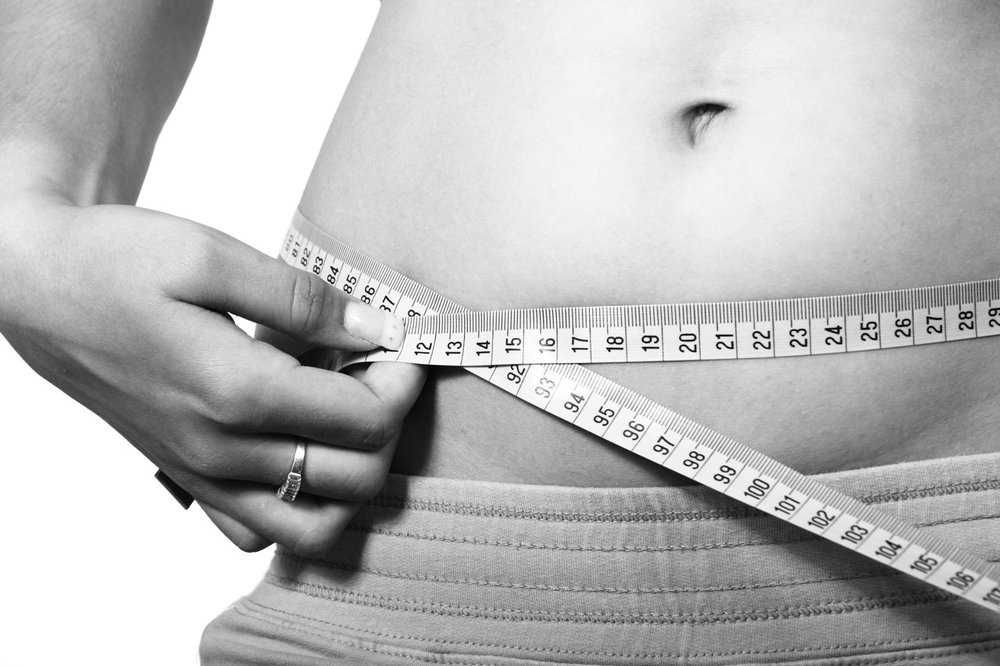
I see and feel the frustrations of my clients when they embark on their journey to become lean, healthy, and happy with their bodies. One of the main frustrations expressed is the battle with the bathroom scale.
Many obsess over their weight and the day to day fluctuations. They drive themselves crazy and second guess their food choices, even if they’re on point with their nutrition.
I’m here to let you know, don’t quit, keep going. All is not lost and in most cases you’re doing just fine and your body is changing, it just takes a little time to reveal your hard work.
These are all things I have either experienced myself or seen firsthand with my clients.
Understanding why the scale fluctuates and what to do about it can help soothe concerns.
Why does my weight fluctuate from day to day?
Sodium – Eating foods high in sodium will cause your body to react by retaining more water. Eating less sodium will have the opposite effect.
Alcohol – Dehydration is the result of drinking alcohol, especially in excess.
Carbohydrate Intake – When consumed, the body coverts carbs into glycogen which is stored in the liver and muscles for energy. Molecules of glycogen contain water. If more carbs are consumed than normal, water weight will be temporarily increased from the storage of glycogen. If carbs are reduced, then glycogen and water weight is lost.
Exercise – Lifting weights causes trauma to muscle tissue. Your body reacts to this by making the muscles bigger and stronger. This allows them to be able to handle the increased demands from exercise. The muscles retain water as this helps in the recovery of stressed muscle fibers.
Restroom – 1-5 pound fluctuations can result from using the restroom.
Hormones – This is most common in women around “that time of the month.” Hormones can cause water retention, bloating, etc.
How much weight (fat) loss can I lose per week?
One to two pounds of weight loss per week is considered to be a healthy range. This minimizes muscle loss and is sustainable for most people without feeling overly hungry.
But I have this beach vacation in two weeks and I want to lose 5 pounds a week!
Losing more than 1-2 pounds per week will result in muscle tissue loss. Muscle is metabolic, meaning the more muscle you have, the more calories you’ll burn while resting. So keeping the muscle you have is very important. Many grossly overestimate what’s possible with weight loss due to a lot of misinformation, mainly from supplement companies.
Men and women who have a lot of weight to lose can initially lose much more than 1-2 pounds per week. This is mainly due to excess water and glycogen retention that is lost quickly when intake is reduced.
How much should I eat to start losing weight?
Step 1: Calculate your coma calories
Coma calories a.k.a. basal metabolic rate (BMR) is the amount of energy intake you need to maintain your body weight if you fell into a coma or you binge watching every season of The Walking Dead.

Step 2. Adjust intake for activity
Exercise and general activity will add energy intake to your BMR.
Step 3. Set weight loss or weight gain targets
To make things easy, try this online calculator for CALORIES and this one for MACROS.
For my clients I use a comprehensive spreadsheet calculator to find their intake.
Keep in mind, no calculator is perfect. This initial calculation is at best, a guess.
These calculators were created using averages and remember you are a unique snowflake. There is no telling how your body will respond to these numbers. It’s best to use your calculation as a starting point, see how your body responds over the course of a week or two (gaining or losing weight), and make adjustments from there.
How often should I weigh myself?
The most accurate option (but often the most anxiety causing) is to take your weight every morning for 7 days and average out your weight to see if you gained or lost. However, using the scale everyday can cause more stress than it’s worth.
The next best option is to weigh once per week.
The best time to weigh yourself is first thing in the morning, naked or wearing the same clothes, and after going to the bathroom.
Take Photos
Taking photos can be very useful. We often have the same conversations and thoughts in our head when looking at ourselves in the mirror, and many times, they aren’t very nice.
Take pictures every two weeks.
Look back to see all the great progress you’ve made. It is hard to see all the hard work you’ve put in when you look at yourself everyday in the mirror.
Take Measurements
The tape measure tells you what the scale doesn’t. How much fat and or muscle was gained or lost.
Did your weight stay the same or increase yet your measurements went down? Nice work! You just gained muscle and lost fat at the same time!

Track Strength and Performance
Are you getting stronger?
Do you have more energy for your workouts and day to day activities?
As hard as it may be, try not to obsess over the scale. Incorporating the above strategies will help paint the whole picture of what’s really going on with your fitness journey. And remember, it’s always better to focus on how much better you are feeling, how much better your clothes are fitting, and that you’re going to live longer. That’s what really matters.